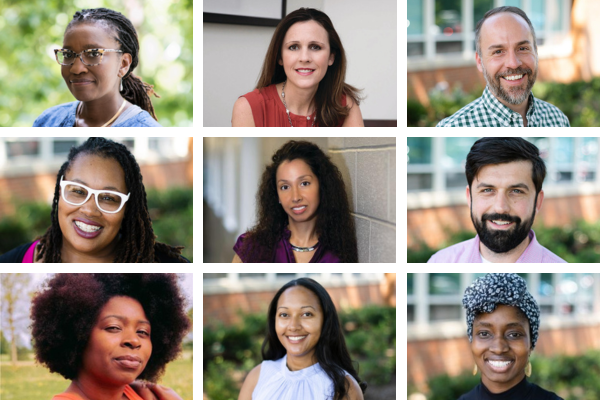
Youth-Nex is dedicated a) to providing a venue for scholars and practitioners whose work is furthering the goal of racial justice, b) to supporting developmental science that is not only anti-racist but is in the service of dismantling white supremacy, and c) to amplifying the voices and lived experiences of adolescents who have been marginalized. Interested in joining this work and furthering your education?
Faculty at Youth-Nex from multiple universities are accepting doctoral students for the fall 2024. As application season approaches, review their faculty profiles for more on their scholarship, explore the academic programs they are accepting students through and APPLY to join our community! In alphabetical order, learn more below about Dr.s Valerie Adams-Bass, Catherine Bradshaw, Chris Chang-Bacon, Katrina Debnam, Noelle Hurd, Michael Lyons, Channings Mathews, Lora Henderson Smith, and Jonee Wilson.

Dr. Valerie N. Adams-Bass
Valerie N. Adams-Bass is an applied researcher seeking to advance scholarship that provides meaningful contributions to the lives of Black youth and their families. Her research integrates contextual factors with a focus on how Black children see themselves and related outcomes, and she is most interested in examining how media exposure influences inter-personal interactions and self-concept.
Dr. Adams-Bass is accepting a doctoral student at Rutgers University through the Childhood Studies program.
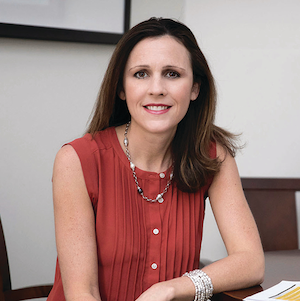
Dr. Catherine Bradshaw (she/her)
Dr. Catherine P. Bradshaw is a professor, the senior associate dean for research and a faculty fellow with the University’s vice president of research. Her research focuses on bullying and school climate; emotional and behavioral disorders; and the design, evaluation, and implementation of evidence-based prevention programs in schools.
Dr. Bradshaw is accepting a doctoral student at the University of Virginia through the School & Clinical Psychology program.
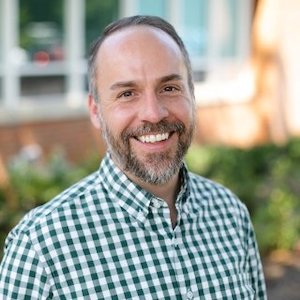
Dr. Chris Chang-Bacon (he/his)
Chris Chang-Bacon researches equity in multilingual and multicultural contexts. His work explores anti-oppressive pedagogies and policies in English as a Second Language (ESL), dual-language, and bilingual education settings.
Dr. Chang-Bacon is accepting a doctoral student at the University of Virginia through the Language Education in Multilingual Contexts program and/or the Curriculum & Instruction program.
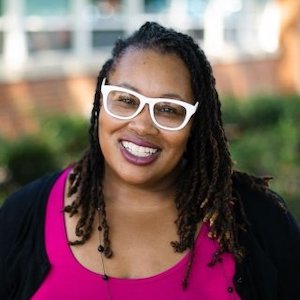
Dr. Katrina Debnam (she/her)
Debnam’s scholarship stems from her interest in health outcomes for marginalized adolescents through community-based violence prevention strategies. Debnam serves as a research expert in three interrelated strands of adolescent health, teen dating violence prevention, creating equitable school environments for Black youth, and the protective role of religion and spirituality in youth development.
Dr. Debnam is accepting a doctoral student at the University of Virginia through the Research, Statistics, & Evaluation program.
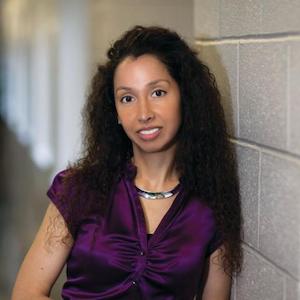
Dr. Noelle Hurd (she/her/ella)
Dr. Hurd is planning to admit a doctoral student for the 2024/2025 academic year who has an interest in studying how social experiences in emerging adulthood may influence subsequent physical health outcomes. Prospective applicants should have an interest in quantitative analyses with longitudinal data.
Dr. Hurd is accepting a doctoral student at the University of Virginia through the Community Psychology program and/or the Clinical Psychology program.
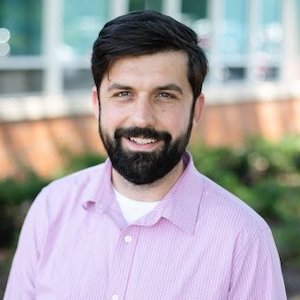
Dr. Michael Lyons (he/him)
Michael Lyons is interested in the social-emotional development of middle and high school students in a positive psychological and traditional mental health framework. Specifically, his research reflects an interest in understanding the mechanisms and practices in a school setting that promote student well-being and school-relevant outcomes (e.g., grades and behavior) through an ecological model.
Dr. Lyons is accepting a doctoral student at the University of Virginia through the School & Clinical Psychology program.

Dr. Channing Mathews (she/her/hers)
Dr. Mathews’ research considers how youth of color draw upon their ethnic-racial identity and critical consciousness development as motivators for their STEM based academic engagement and activism. Her scholarship has three central foci: 1) integrating ethnic-racial identity and critical consciousness factors as dual promoters of positive Black and Latinx adolescent and emerging adult development, 2) examining how both ethnic-racial identity and critical consciousness promote STEM orientation, and 3) assessing the complexity of ethnic-racial identity and critical action behaviors (including STEM-based activism) in both Black and Latinx adolescence and adulthood.
Dr. Mathews is accepting a doctoral student at the University of Virginia through the Community Psychology program.
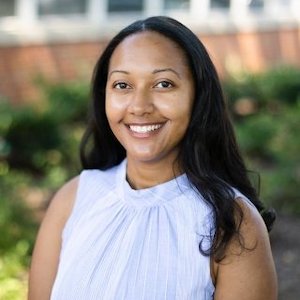
Dr. Lora Henderson Smith (she/her/hers)
My research broadly focuses on student wellbeing with projects on improving supports for students returning to school after mental health crises and collaborative work focused on culturally responsive practices in schools. I use mixed-methods and community-engaged research methods to elicit the voices of minoritized and marginalized youth and community members in my work.
Dr. Henderson Smith is accepting a doctoral student at the University of Virginia through the School & Clinical Psychology program.
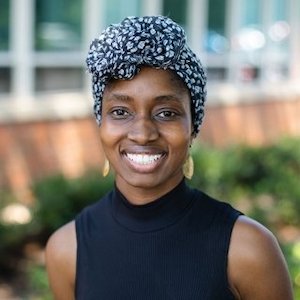
Dr. Jonee Wilson (she/her/her’s)
My research focuses on examining and outlining instructional practices that empower and honor historically marginalized students specifically in the context of conceptually-oriented mathematics classrooms. I am also working with others in using what we, as a field, are learning about equitable mathematics instruction to support school and district leaders, instructional coaches, and teachers as they work to understand and develop practices that aim for equity.
Dr. Wilson is accepting a doctoral student at the University of Virginia through the Curriculum & Instruction program.
If you have any comments or questions about this post, please email Youth-Nex@virginia.edu. Please visit the Youth-Nex Homepage for up to date information about the work happening at the center.

